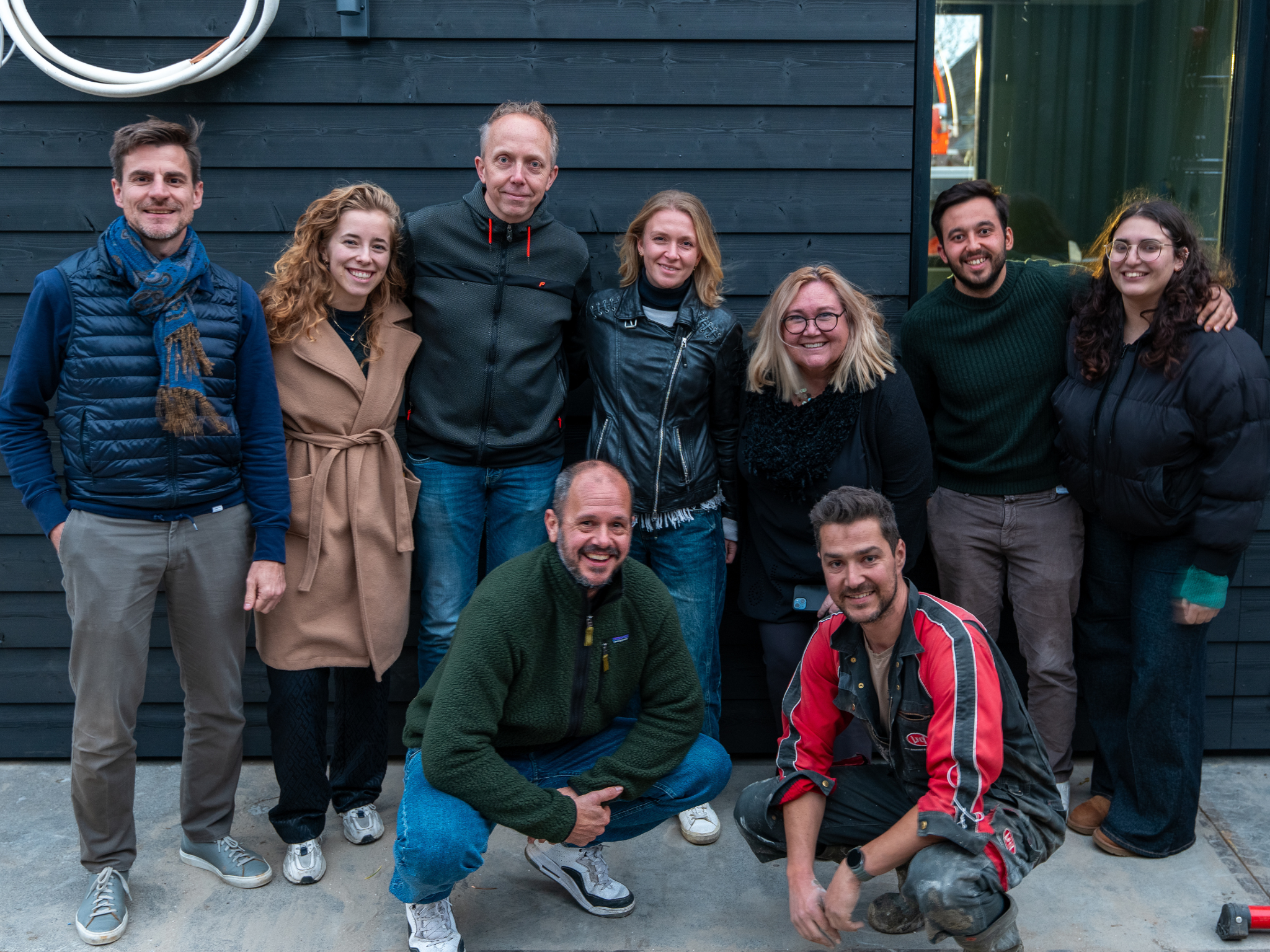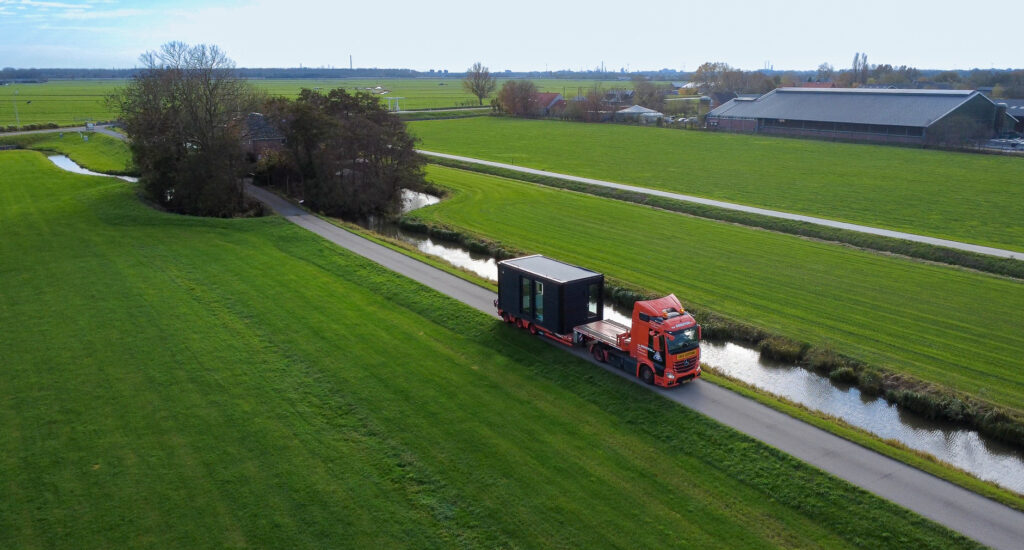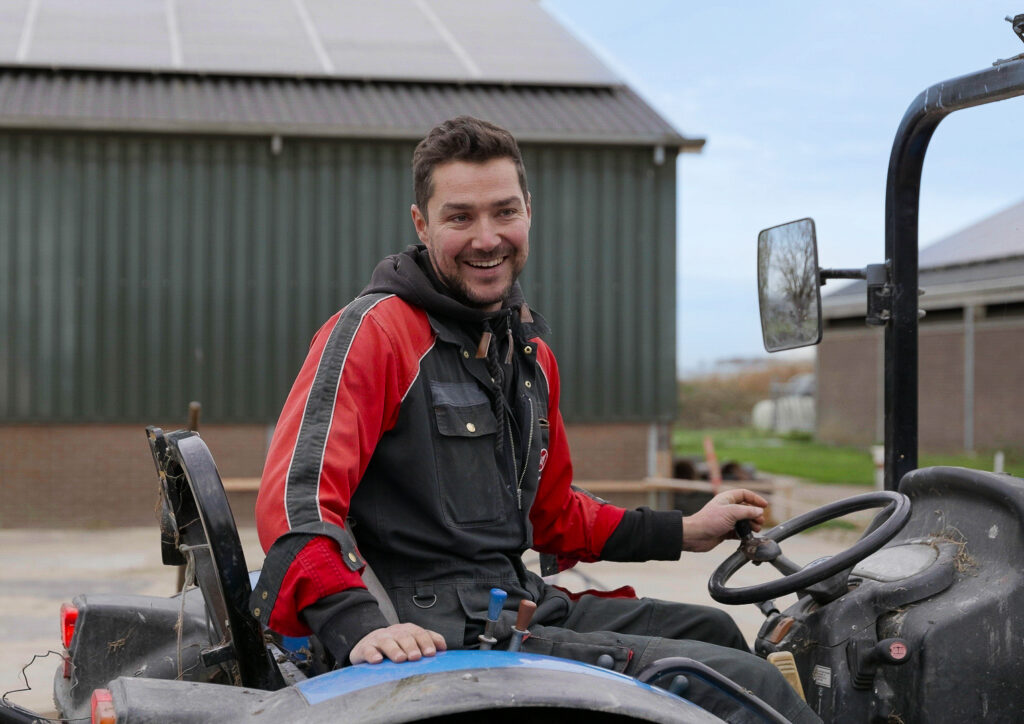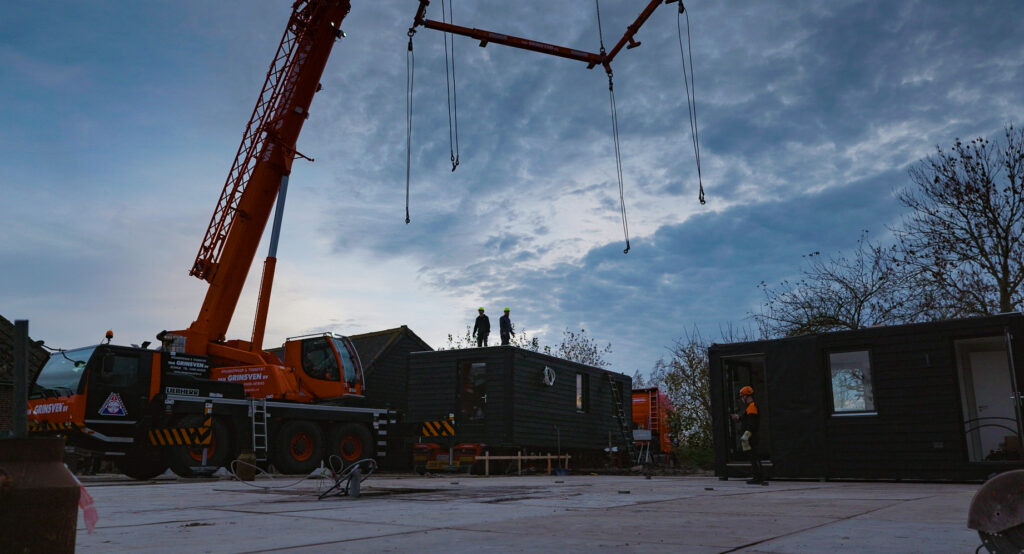
RespectFarms has launched a pilot farm to produce cultivated meat in the Netherlands, with Corné van Leeuwen becoming the first farmer to receive EU funding for these proteins.
Backed by public funding from the EU and the provincial government, dairy farmer Corné van Leeuwen will now also produce cultivated meat.
Thanks to systems integration firm RespectFarms, his dairy operation in South Holland is now equipped with a cultivated meat production unit, making it the first such farm in the world.
With the cultivated meat units installed and operational in the coming weeks, van Leeuwen’s farm will demonstrate how livestock farmers can integrate these proteins into their existing setups, allaying fears of the technology’s impact on the farming community.
The project is supported by the European Innovation Partnership for Agricultural Productivity and Sustainability (EIP-Agri) and the South Holland province, making van Leeuwen the first farmer globally to receive agricultural funding to grow cultivated meat.
“We’re building a model where livestock farmers remain at the centre of food production, not replaced by factories,” said Ira van Eelen, co-founder of RespectFarms and Cellular Agriculture Netherlands. “This is an opportunity to make the protein transition fair, transparent, and rooted in rural communities.”
Farmers must be at the centre of the cultivated meat ecosystem

RespectFarms integrates cultivated meat and the knowledge of technology partners to develop a scalable, on-farm model for these proteins. Instead of relying on massive, centralised facilities, the startup supports a local, farm-first approach.
This scale-out model introduces advanced agritech to farms, supporting innovation, income diversification, and locally rooted food production. It generates new knowledge and opportunities for livestock farmers and policymakers, and boosts the economic foundations of rural communities.
“As a farmer, you have to look ahead, especially these days,” said van Leeuwen, whose farming family has always championed innovation, from using milking robots to producing artisanal cheese. “This is a chance to see whether a new income model can fit alongside what we already do. Making cultivated meat on the farm makes sense for many reasons. Not trying it would be a missed opportunity.”
RespectFarms has previously explained that through this model, farmers would be able to produce more meat with fewer cows, which wouldn’t need to be slaughtered. It safeguards them against any disease risk to the livestock (and eventually humans who consume their meat).
“RespectFarms boils down a world problem to farm size. And once it works, we scale this out to the world to increase impact,” said Ralf Becks, co-founder of RespectFarms.
The project creates a real-world test centre for learning how cultivated meat production can complement livestock farming. And that has been a major sticking point for critics of the technology, with policymakers citing threats to farmers as the drivers of legislative restrictions and bans on cultivated meat.

In fact, farmers recognise the opportunities presented by cultivated meat and have opposed such bans, noting that they didn’t need the government’s help to compete with these proteins. Instead, they’re more worried about the social issues brought on by this technology, like Big Food controlling the market or the knock-on effects on rural communities, than the impact on their bottom lines.
Further, consumer organisation Euroconsumers notes that small-scale on-farm cultivated meat production “can offer opportunities for farmers“, as long as we “keep things fair and make sure benefits don’t just go to a few big players”.
Respectfarms to open experience centre to boost public engagement
Euroconsumers also found that when it comes to ensuring the safety of cultivated meat, way more Europeans place their trust in farmers (27%) than retailers or private companies (11%), according to a Euroconsumers survey this year.
So it’s a positive sign that public bodies are recognising this. EIP-Agri is an EU framework that connects farmers, researchers, and businesses to accelerate agricultural innovation. It funds experimental projects that enhance productivity, sustainability, and knowledge sharing.
Meanwhile, the South Holland province contributed funds to support innovation, farmer engagement, and knowledge exchange. “This initiative demonstrates how innovation in agritech and biotech supports both our province and the Netherlands in the protein transition, while also creating economic opportunities,” said Meindert Stolk, the regional minister for economy and innovation.
“By developing technology and knowledge locally and exporting it internationally, we strengthen our position as a leader in sustainable food production and strategic technology,” he added.

RespectFarms co-founder Florentine Zieglowski said the firm is “pioneering a fast way to commercialise cultivated meat – decentralised and together with agricultural, tech and supply chain partners”. These include Wageningen University & Research, cultivated meat firms Mosa Meat, Aleph Farms, Multus, sustainable agriculture company Kipster, and facility design specialist Royal Kuijpers.
Together, they’re part of the Craft (Cellular Revolution in Agriculture and Farming Technology) Consortium, which was awarded €2M in a grant co-funded by the EU-backed accelerator, EIT Food, to build the cultivated meat farm.
Respectfarms will open an experience centre at van Leeuwen’s farm next spring, engaging with farmers, value chain stakeholders, and policymakers, while welcoming local communities and educators to witness cultivated meat production firsthand. The goal is to foster public engagement and transparency, a key tenet for greater consumer acceptance of cultivated meat.
“People need to see what’s really happening,” said van Eelen. “It’s good to have a place where science meets farmers, citizens, and policymakers to learn, debate, and co-create the future of food production and farming.”
The post The World’s First Cultivated Meat Farm is Now Open in the Netherlands appeared first on Green Queen.
This post was originally published on Green Queen.